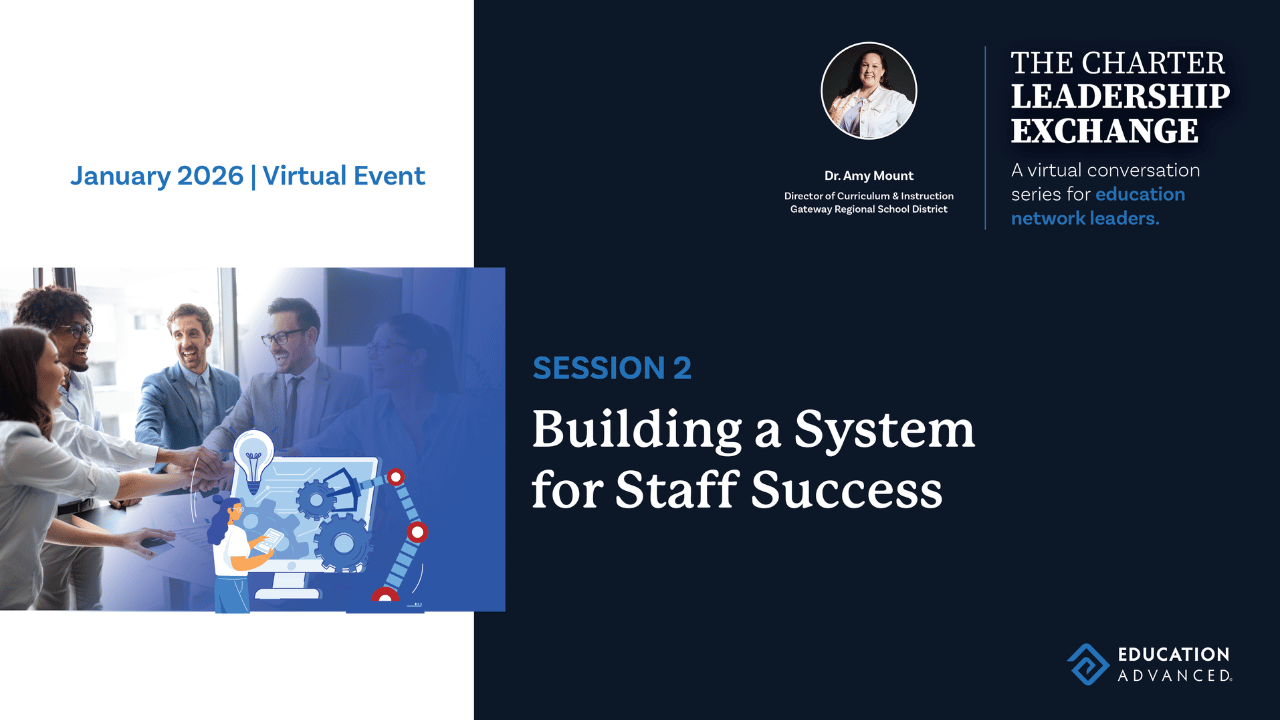The Vital Role of School Counselors: Primary Guides for Student Success

School counselors play an integral role in students’ educational journey, acting as key navigators to guide them toward success. Their impact extends beyond academic achievement, touching on every aspect of a learner's personal and social development.
Read on for a closer look at the importance of school counselors, the challenges they face, and the best practices that can empower them to fulfill their mission more effectively.

Recognizing the Critical Role of School Counselors
School counselors provide a multifaceted support system within schools, offering guidance that encompasses academic, career, and personal development. Their role is pivotal in helping students navigate the complexities of their educational journey; not to mention life outside of school.
School counselors generally take a comprehensive approach to student support, so that every learner receives the attention and resources they need to thrive. But what exactly does a school counselor do? Their range of core responsibilities include:
- Providing personalized academic guidance to promote student outcomes.
- Offering emotional support and guidance for personal challenges.
- Assisting students with career planning and exploration.
- Supporting students through the college application process.
- Providing immediate support and intervention during crises.
- Advocating for students' needs within the school community.
- Building partnerships with community resources for student support.
What Are the Goals of Professional School Counselors?
Key goals of school counselors extend beyond academic achievement to include fostering social-emotional learning, promoting mental health, and preparing students for post-secondary options. Let’s take a closer look at the objectives of counselors today:
- Promoting Academic Success: Ensuring that all students achieve their academic potential by providing guidance and support tailored to their individual needs.
- Supporting Social and Emotional Well-being: Fostering a positive school climate where students feel emotionally supported and equipped with coping skills to navigate personal challenges effectively.
- Facilitating Career Planning: Assisting students in exploring their interests, strengths, and career options, and guiding educational pathways and career opportunities.
- Ensuring College and Career Readiness: Helping students navigate the college application process, providing information on admissions requirements, scholarships, and financial aid. That way, current students feel fully prepared for post-secondary education or vocational pursuits.
- Providing Crisis Intervention and Support: Prepared to respond to crises and offer immediate support and intervention to students experiencing personal, academic, or emotional crises.
School counselors are invaluable to educational institutions, creating an environment where students can thrive academically. At the same time, they help learners develop the interpersonal skills necessary for life beyond school.

The Challenges of School Counselors in Promoting Student Success
Unfortunately, middle and high school counselors face several challenges in their efforts to effectively support students. These include:
A Nationwide Shortage of School Counselors
Schools across the country are grappling with a persistent shortage of school counselors, which greatly impacts their ability to offer personalized attention and support. The American School Counselor Association suggests a ratio of 250 students per counselor; however, the national average stands at 385-to-1. Additionally, the Department of Education reports that 17% of high schools lack a school counselor altogether, leaving approximately 653,700 high school students without this essential support. This challenge is even more pronounced in resource-limited schools, where counselors frequently assume extra duties — further limiting their ability to adequately address all student needs.
Rising Mental Health Needs
Mental health challenges among students have become increasingly more prevalent, demanding more of school counselors' time and expertise. The National Center for Education Statistics reveals that 69% of public schools reported an increase in the percentage of their students seeking mental health services at school in recent years. Moreover, 76% of schools also reported an uptick in staff voicing concerns about their students exhibiting symptoms such as depression, anxiety, and trauma.
The rise of technology and social media has only introduced new dimensions to these challenges, affecting students' social skills, self-esteem, and overall well-being. School counselors are at the forefront of addressing these issues, requiring them to stay informed about the latest trends and interventions in mental health support.
Navigating Legal Requirements
Counselors must balance confidentiality with the need to report certain issues, all while adhering to professional standards and legal requirements. This includes complying with the Family Educational Rights and Privacy Act, anti-discrimination laws, and more. Such a delicate balance requires a deep understanding of ethical guidelines and a commitment to student welfare.
Resource Limitations
The impact of resource limitations extends beyond staffing issues, affecting the availability of funds, programs, and interventions that can support student success. School counselors often have to be creative in leveraging existing resources and advocating for additional support to meet the diverse needs of their students.
5 Best Practices for Empowering School Counselors’ Goals
Schools can consider the following strategies to support school counselors in their vital role:
1. Foster a Positive School Culture
Encouraging collaboration among school staff and fostering a community that values mental health and academic support can significantly enhance the effectiveness of school counselors. Consider organizing regular meetings or workshops where these professionals can share their expertise and collaborate with teachers and administrators. And be sure to recognize counselors' contributions through school-wide announcements, appreciation events, or awards to underscore their importance in the school community. This creates an environment where everyone can recognize that counselors are integral to student success and support their contributions.
2. Advocate for Resources
Advocating for resources might include securing funding for additional staff, training, and materials that enable counselors to implement effective programs. To do this, schools can:
- Work with school administrators, parent-teacher associations, and community stakeholders to raise awareness of the importance of comprehensive school counseling programs.
- Present data and success stories demonstrating the impact of counseling services on student outcomes to garner support for increased resources.
School counseling programs, endorsed by the American School Counselor Association, provide a framework for delivering a balanced approach to academic, career, and personal/social development. Schools that invest in these programs demonstrate a commitment to the holistic development of their students.
3. Provide Ongoing Training Opportunities
Continuous training opportunities allow counselors to stay current with best practices in all aspects of counseling, mental health, and educational technology. consider hosting professional development workshops, webinars, or conferences focusing on topics relevant to counselors' roles and responsibilities. Leveraging technology can streamline administrative tasks, facilitate communication with students and parents, and provide access to a wider range of resources and interventions. This is key to enhancing the efficiency and impact of school counselors in the long run.
4. Establish Peer Support Networks
Peer support networks provide a platform for counselors to share experiences, strategies, and resources — fostering a sense of community and collaboration. You might facilitate regular meetings or online forums where counselors can discuss challenges or seek advice. Or, encourage senior counselors to mentor newer colleagues. Through peer support, this educational leadership can find encouragement and innovative ideas to enhance their practice and better serve students.
5. Work With Trusted Partners
Collaborate with trusted partners, like Education Advanced, to enhance school counseling efforts. Explore tools and solutions such as Pathways that support counselors in managing caseloads, tracking student progress, and implementing interventions. It also helps to establish partnerships with community organizations, mental health professionals, and local agencies to expand the support network available to counselors and ensure holistic student care. Be sure to regularly evaluate and adjust your partnerships based on the evolving needs of students and the school community.

The Transformative Impact of Improved Processes in School Counseling
Implementing best practices in school counseling can lead to significant improvements in student support and outcomes. By adopting a comprehensive approach to counseling, schools can ensure that students receive the guidance they need to navigate academic challenges, explore colleges and career paths, and develop essential interpersonal skills.
Enhanced processes in school counseling also contribute to a positive school climate where students feel valued, understood, and supported. And a strong counseling program helps build a sense of community and belonging among students. This can reduce incidents of bullying and improve overall student satisfaction. Furthermore, professional networks established among school counselors can lead to shared strategies and resources, amplifying the impact of counseling services across the board.
It’s important to note that continuous learning and awareness of current trends in education and mental health are critical for counselors. As students’ needs evolve, so must the approaches taken by guidance counselors. Staying informed about new research, technologies, and methodologies ensures that these professionals can effectively address the diverse needs of students and contribute to a culture of ongoing improvement.
Partner With Education Advanced for Enhanced School Counseling
As key navigators of student achievement and well-being, school counselors’ contributions are essential to creating a supportive and inclusive educational environment. To further empower school counselors and enhance their ability to meet student needs, partnering with organizations like Education Advanced can provide valuable support and resources.
Education Advanced offers a suite of solutions specifically designed to support the goals of school counselors. Tools like Pathways help these school leaders more efficiently manage their caseloads, track student progress, and implement effective interventions. By leveraging the resources, schools can ensure that their counselors have the support they need to make a meaningful difference in the lives of their students.
Explore the full capabilities of Pathways from Education Advanced or contact us to get started today.
More Great Content
We know you'll love




